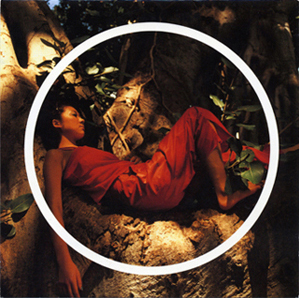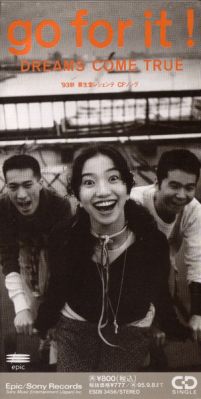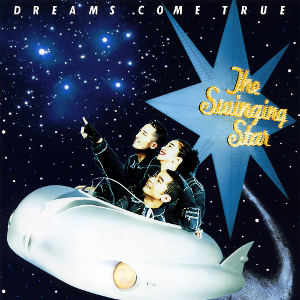
Rainbow is the fifth studio album by Japanese recording artist Ayumi Hamasaki, released on 18 December 2002 by Avex Trax. Production of Rainbow had commenced after the release of Hamasaki's fourth studio album I Am... that January; All lyrics were written by Hamasaki, and Japanese producer Max Matsuura returned to produce the album. The album was Hamasaki's first to feature conversational English lyrics, where in her previous works she had only used single words.

(Miss)understood is the seventh studio album by Japanese singer-songwriter Ayumi Hamasaki. It was released on New Year's Day 2006, by Avex Trax. Hamasaki acted as the album's sole lyricist, as she had on all of her preceding albums. (Miss)understood marked new musical directions for Hamasaki: she explored new influences such as funk and used gospel choruses in some of the songs, foreign to her previous works. This was the result of her having heard compositions by Geo from the German-based pop music project Sweetbox and asking him for his works. Subsequently, Hamasaki rewrote the lyrics entirely to fit (Miss)understood.

181920 is debut greatest hits album by Japanese singer Namie Amuro. Avex Trax released it in Japan on January 28, 1998, and it was later available in a variety of formats throughout Asia. The album contains Amuro's single releases from her debut studio album Dance Tracks Vol. 1 (1995) to her third album Concentration 20 (1997), as well as three tracks from her time with Toshiba-EMI. The album also included a new song called "Dreaming I Was Dreaming," which served as the only single from the album.

Mother Father Brother Sister is the debut studio album by Japanese singer and songwriter Misia, released on June 24, 1998, by Arista Japan. It was produced by Haruo Yoda and Hiroto Tanigawa and recorded between 1997 and 1998. Mother Father Brother Sister is commonly noted as being one of the first mainstream Japanese pop albums to incorporate elements of African-American music such as soul music, gospel, and contemporary R&B.

Yureru Omoi is the fourth album by Zard and was released on July 10, 1993 under B-Gram Records. This is the first original album released in about 10 months since the last album Hold Me. It is also the first album by Izumi Sakai as a solo unit since her first album Good-bye My Loneliness. The release was postponed several times, but was finally released on July 10. In addition, the order form at CD stores indicated that the album title was "Kimi ga Inai" and that it would be released simultaneously with the single "Yureru Omoi" on May 19.

Best Fiction is the third greatest hits album by Japanese singer Namie Amuro. It was released on July 30, 2008, by Avex Trax and features seventeen singles released between 2002-2008, which included five new songs, three of which were released as a triple A-side single called "60s 70s 80s." Furthermore, the album tracks "Do Me More" and "Sexy Girl" were released as digital singles.

Perfect Crime is the second studio album by Japanese recording artist Mai Kuraki. It was released on July 4, 2001, by Giza Studio.

"Go for It!" is the 13th single by the Japanese band Dreams Come True, which also served as the lead single for their sixth studio album Magic (1993). It was released on September 9, 1993, by Epic Records Japan. It was the only single released by the group that year. "Go for It!" was the advertising song for Shiseido's product "Rescente" starring Miwa Yoshida, the lead singer of Dreams Come True.

The Swinging Star is the fifth studio album by Japanese band Dreams Come True. It was released on November 14, 1992, by Epic Records Japan. It was their first release in about a year since their previous album, Million Kisses (1991). All of the album's lyrics were solely penned by frontwoman Miwa Yoshida, while its songs were arranged by her bandmate Masato Nakamura. The Swinging Star is a doo-wop, pop, blue-eyed soul, and R&B record, with elements of jazz and disco music.

Past<Future is the ninth studio album by Japanese pop singer Namie Amuro. It was released on December 16, 2009, through Avex Trax. This was her first original album to be released in two and a half years. The record came after the release of her blockbuster greatest hits album Best Fiction (2008), which sold over a million copies. Unlike her previous studio albums, Queen of Hip-Pop (2005) and Play (2007), Past<Future features a more electropop and synth-pop sound that was prevalent in the Western music charts at the time.

Diamond is the debut Japanese studio album by South Korean girl group 4Minute. It was released in Japan on December 15, 2010 in two editions: CD only and limited edition CD+DVD. The limited edition includes a 52-page photo book that highlights some of the group's single releases and Japanese debuts. The album peaked at number 27 on Japan's weekly Oricon Albums Chart and sold over 12,000 copies.

Fiore is the first compilation album by Japanese recording artist Arisa Mizuki, released through Nippon Columbia on October 1, 1993. The eleven-track set features a selection of songs from Mizuki's first two studio albums, Arisa and Arisa II: Shake Your Body for Me, as well as two original songs. It is Mizuki's first album to include the original versions of both "Densetsu no Shōjo" (1991) and "Too Shy Shy Boy!" (1992).

Love Unlimited∞ is the eighth studio album by Japanese band Dreams Come True. It was released in Japan and throughout Asia on April 1, 1996, through Epic Records Japan, ultimately being their last album released under the label. The record's lyrics were entirely written by Miwa Yoshida herself, while the song's compositions were handled by her alongside bandmates Takahiro Nishikawa and Masato Nakamura. Musically, Love Unlimited∞ is a pop and R&B album and lyrically focuses on themes of love. Two music videos are included on the CD-EXTRA of the Japanese version only. They are not included on the local versions sold in Taiwan, Hong Kong, etc. The slogan on the obi is, as the title suggests, "Love has no limits."

Wake Up is the first Japanese and second overall studio album by South Korean boy band BTS. It was released in Japan on December 24, 2014, through Pony Canyon. The 13-track album includes Japanese versions of the band's Korean singles "No More Dream", "Boy in Luv", and "Danger"—all of which were released in the months prior as physical Japanese singles—and two new, original Japanese songs: "The Stars" and "Wake Up". The album became BTS' highest-charting and best-selling album in Japan at the time, following its debut at number three on the Oricon Albums Chart, and sales of over 28,000 copies.

Dreams Come True The Best! Watashi no Dorikamu is a 2015 greatest hits album by the Japanese band Dreams Come True. It was released on July 7, 2015. It was number-one on the Oricon Weekly Albums Chart for six non-consecutive weeks. It was the third best-selling album of 2015 in Japan according to the Oricon Yearly Albums Chart, with 828,505 copies sold.
Japanese idol group Sakura Gakuin has released eleven studio albums, one compilation album, fifteen video albums, thirty-four music videos, and thirteen singles. Seven more singles and nine more music videos have been released by sub-units, including those by the band Babymetal released prior to March 2013. Studio albums are released annually, under the supertitle Sakura Gakuin [Year] Nendo.

"Suki" is a song recorded by Japanese band Dreams Come True for their seventh studio album, Delicious (1995). It was released as the album's lead single by Epic/Sony Records on November 4, 1994. An English version of the song, dubbed "Suki ", was featured on the 1996 film Shichigatsu Nanoka, Hare, starring Alisa Mizuki and Masato Hagiwara.

Magic is the sixth studio album by Japanese pop band Dreams Come True. It was released on December 4, 1993 by Epic Records Japan. Musically, it is a pop album with funk, jazz, R&B and doo-wop influences from Western music. Lyrics were solely provided by frontwoman Miwa Yoshida while its songs were arranged by her alongside her bandmate Masato Nakamura.

















